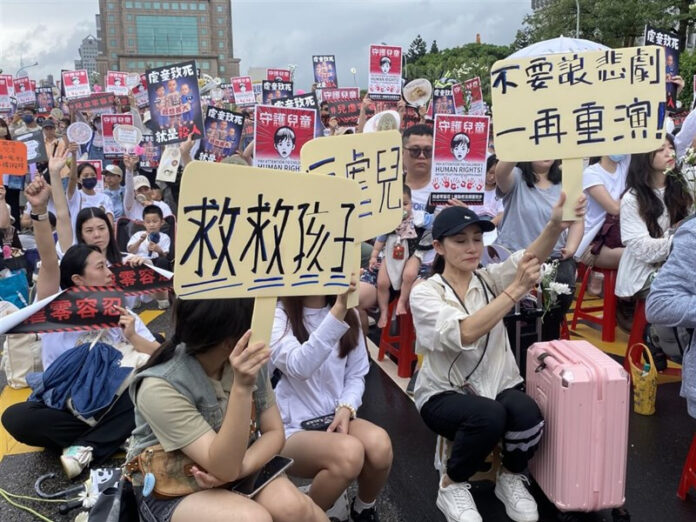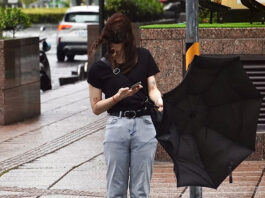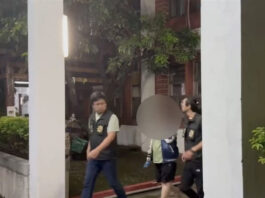In a heart-wrenching case that has sparked widespread outrage and concern, the Child Welfare League Foundation (CWLF) has publicly apologized following the conviction of two sisters for the brutal abuse and death of a 1-year-old boy in their care. The Taipei District Court sentenced Liu Tsai-hsuan and Liu Juo-lin to life imprisonment and 18 years in prison, respectively, for charges related to the child’s fatal abuse. The case has underscored serious flaws in Taiwan’s child protection system and raised critical questions about the oversight and regulation of child caregivers. The tragic incident has reignited the debate about the need for systemic reforms in child welfare policy, with both lawmakers and child advocacy groups pushing for urgent changes to prevent future tragedies.
The Case Overview
The tragedy unfolded when two sisters, Liu Tsai-hsuan (the older of the two) and Liu Juo-lin, were hired by the CWLF to provide foster care for a young boy known as Kai Kai. Kai Kai’s biological mother went missing shortly after his birth in February 2022, and with the father’s whereabouts also unknown, custody of the infant was transferred to his grandmother. In June 2023, the grandmother expressed her intention to put the child up for adoption, which led to the CWLF assuming responsibility for the child.
However, instead of offering Kai Kai a safe environment, the two sisters subjected him to extreme abuse. The Taipei District Court’s ruling described their actions as not only cruel but also emotionally disturbing, noting that the sisters appeared to derive pleasure from the abuse. The abuse led to the child’s tragic death, and the court sentenced the sisters for their heinous actions. Liu Tsai-hsuan received a life sentence, while her sister Liu Juo-lin was handed 18 years in prison.
CWLF’s Response: Acknowledgment of Failures and Calls for Reform
In the aftermath of the court ruling, the CWLF issued a public apology, admitting its failure to prevent the tragedy despite its responsibility as a child welfare organization. The foundation emphasized that it would conduct a full internal review of the incident and vowed to take legal responsibility if any further proceedings deemed them liable. This acknowledgment of failure is a step toward accountability, but many feel it is not enough.
The CWLF also made a public call for systemic changes, including the establishment of a dedicated government agency to coordinate and enforce child and youth welfare policies. At present, child welfare in Taiwan is overseen by various organizations and agencies, which has led to inefficiencies and gaps in the protection system. The foundation’s call for a dedicated agency aims to ensure that all child welfare programs are standardized, well-funded, and accessible to those in need.
Furthermore, the CWLF advocated for the introduction of a comprehensive childcare services act. This legislation would prioritize vulnerable and special-needs children, ensuring they receive the necessary support and care. By providing a legal framework for the welfare of these children, the act would enforce stricter regulations on caregiving practices and ensure proper training and monitoring of caregivers.
Legislative and Public Response: The Need for Legal Reforms
The tragic death of Kai Kai has caught the attention of lawmakers and advocacy groups, who have highlighted the weaknesses in Taiwan’s current child protection system. New Power Party Chairwoman Claire Wang stressed the need for immediate legislative changes to prevent further tragedies. Wang proposed several measures, including a childcare monitoring platform and a transparent caregiver registry. These measures would improve accountability and ensure that all caregivers are thoroughly vetted before being allowed to work with vulnerable children.
In addition to Wang’s proposals, Democratic Progressive Party (DPP) lawmaker Lin Yueh-chin expressed concern about existing legal loopholes in Taiwan’s child protection laws. Lin argued that inconsistencies in the enforcement of child protection policies, coupled with vague definitions of abuse, have left minors vulnerable to harm. She called for an immediate legal review to address these issues and ensure stronger protections for children.
Understanding the Failures and the Road Ahead
While the CWLF and lawmakers have voiced their concerns and proposals, the tragic incident points to deeper, systemic issues in Taiwan’s child welfare infrastructure. One major problem is the fragmented approach to child protection. Various agencies are tasked with different aspects of child welfare, but without central coordination, there is little consistency in the services provided, especially for children in temporary care.
Moreover, Taiwan’s reliance on aging caregivers has become another point of concern. The country’s aging population has led to a shortage of qualified, trained childcare workers, especially nannies who are tasked with caring for children in temporary or foster care situations. The lack of comprehensive regulation around caregiver qualifications has led to situations like the one involving Kai Kai, where caregivers with insufficient training or supervision are given responsibility for vulnerable children.
To address these issues, it is crucial that Taiwan takes a more proactive approach in creating a child welfare framework that prioritizes child safety over bureaucratic challenges. A comprehensive strategy would include clear legal definitions of abuse, better caregiver screening processes, ongoing monitoring, and stronger community involvement.
Conclusion: A Call for Swift Action
The death of Kai Kai has been a devastating wake-up call for Taiwan’s child welfare system. It is clear that reforms are necessary to ensure that no other child suffers a similar fate. The CWLF’s public apology and acknowledgment of its role in the tragedy are important first steps, but they must be followed by concrete action. Lawmakers must act swiftly to pass reforms that address the systemic issues within the child welfare system, including improved regulation of caregivers, better coordination among agencies, and stronger enforcement of child protection laws. Only through such measures can Taiwan hope to prevent further tragedies and ensure the safety and well-being of its most vulnerable children.
FAQs
What happened in the tragic case involving the two sisters?
Two sisters, hired by the CWLF, were sentenced for fatally abusing a 1-year-old boy named Kai Kai, whom they were hired to care for. The abuse led to his death.
What was the court’s ruling on the sisters?
Liu Tsai-hsuan was sentenced to life in prison, and Liu Juo-lin was sentenced to 18 years for their involvement in the child’s death.
How did the Child Welfare League Foundation respond to the incident?
The CWLF issued a public apology, admitted its failure in preventing the tragedy, and called for systemic reforms in Taiwan’s child welfare policies.
What are the proposed reforms following the incident?
Proposals include the establishment of a central government agency to coordinate child welfare, a dedicated childcare services act, and the creation of a caregiver monitoring platform and registry.
What is the broader issue in Taiwan’s child protection system?
Taiwan’s child protection system suffers from fragmented oversight, insufficient caregiver qualifications, and legal loopholes that leave children vulnerable to abuse and neglect.



